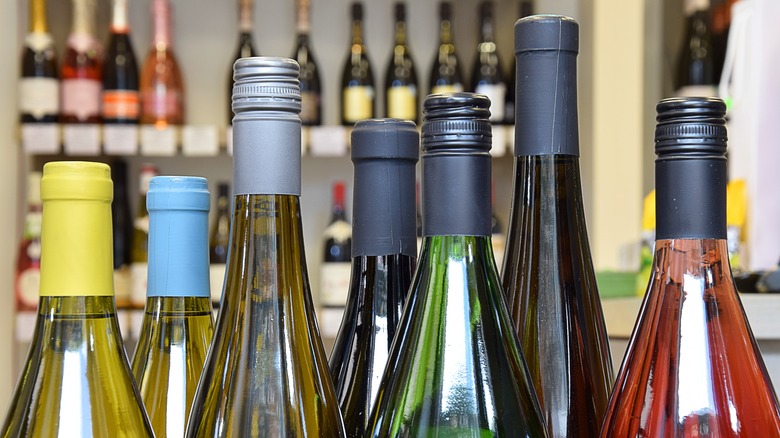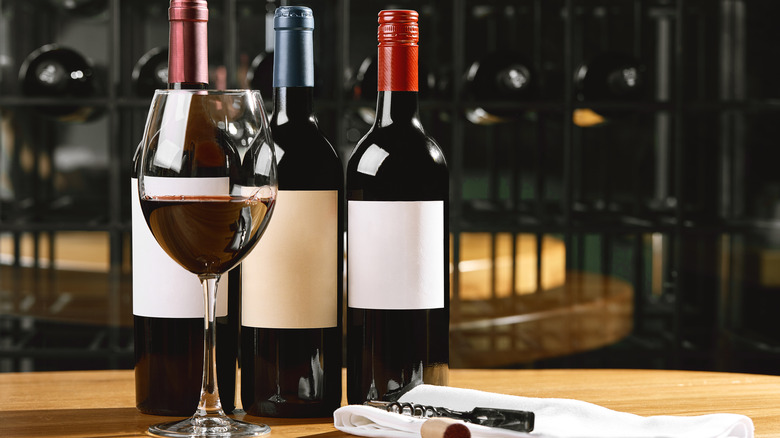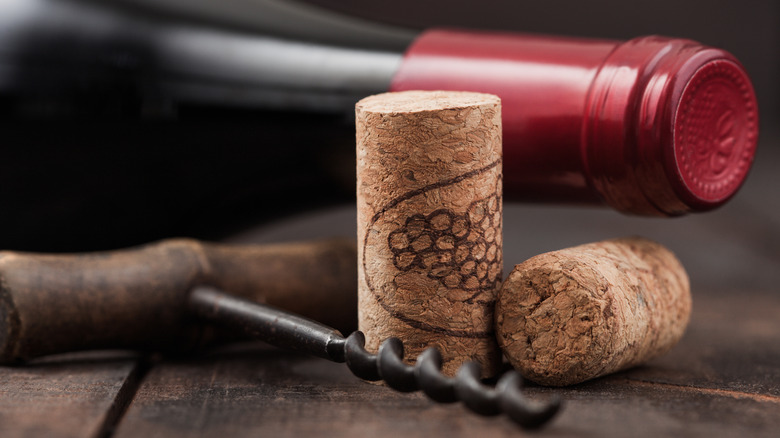Screw Cap Vs. Corked Wine: Which Is Really Better?
The debate over screw tops vs. corks in wine bottles has been raging among wine lovers for years. According to 100% Cork, over 70% of wine bottles use natural cork from cork trees, and its use can sometimes be tied to the perceived quality of the wine. In other words, some purists think that wines that come from wine bottles with screw caps are inferior.
However, as the prevalence of screw caps on wine bottles has grown over the past few decades, with even some of the most respected wineries switching to this method of sealing a bottle, minds are being changed. Even dedicated wine drinkers have difficulty detecting a difference in taste or quality and are coming to appreciate the benefits of bottles with simple screw caps.
Does the way a wine bottle is capped affect the taste and quality of the wine inside? Which is the superior method, cork or screw cap? Let's take a look at what the experts say.
Advantages of screw caps and corks
Using a screw cap or "twistie" has advantages, including ease of opening and closing and giving the bottle an airtight seal. They're also less expensive for the winemaker than natural corks, and that cost savings may benefit your bottom line, too (per California Wine Club). Not to mention, you'll be wishing you'd brought wine with a screw cap if you forget to put a corkscrew in your picnic basket and have to resort to creative ways of opening a bottle of wine.
On the other hand, there's a reason corks have been the stopper of choice for centuries. The fact that corks do not create an airtight seal can be an advantage when you want a wine exposed to some oxygen so it ages properly. Natural corks are biodegradable, giving them a green advantage over their aluminum screw cap counterparts which will be important to you if you are working toward more sustainable living.
The bottom line in the screw cap vs. cork debate is that each has its benefits and drawbacks, but a wine's quality should not be judged by how the bottle is sealed.
Cork taint and TCA
Over the past few years, rumors of a cork shortage have led consumers to believe it was why winemakers were moving toward screw caps. As are many rumors, this one is untrue, but one factor has led many wineries to choose alternatives to corks — TCA.
TCA, formally known as 2,4,6-trichloroanisole, is a pesky compound that can quickly ruin a good wine, and some natural corks can be contaminated with it (via Wine Spectator). TCA creates lots of problems for vintners so using a screw cap makes sense as it can prevent what is known as "cork taint" from wrecking an entire batch of wine.
The attraction of a natural cork stopper seems steeped in tradition (per VinePair). Unscrewing the top off a bottle of wine doesn't have the same effect as the gentle pop that comes from a bottle as it's being uncorked. However, corks aren't always made of actual cork. If you're a wine drinker, you've seen at least a few synthetic stoppers — you'll even find some that are plant-based and biodegradable (via Wine Enthusiast). This third alternative for winemakers that, like screw tops, eliminates TCA worries but still has the pop appeal of a natural cork. It may be the best of both worlds.


